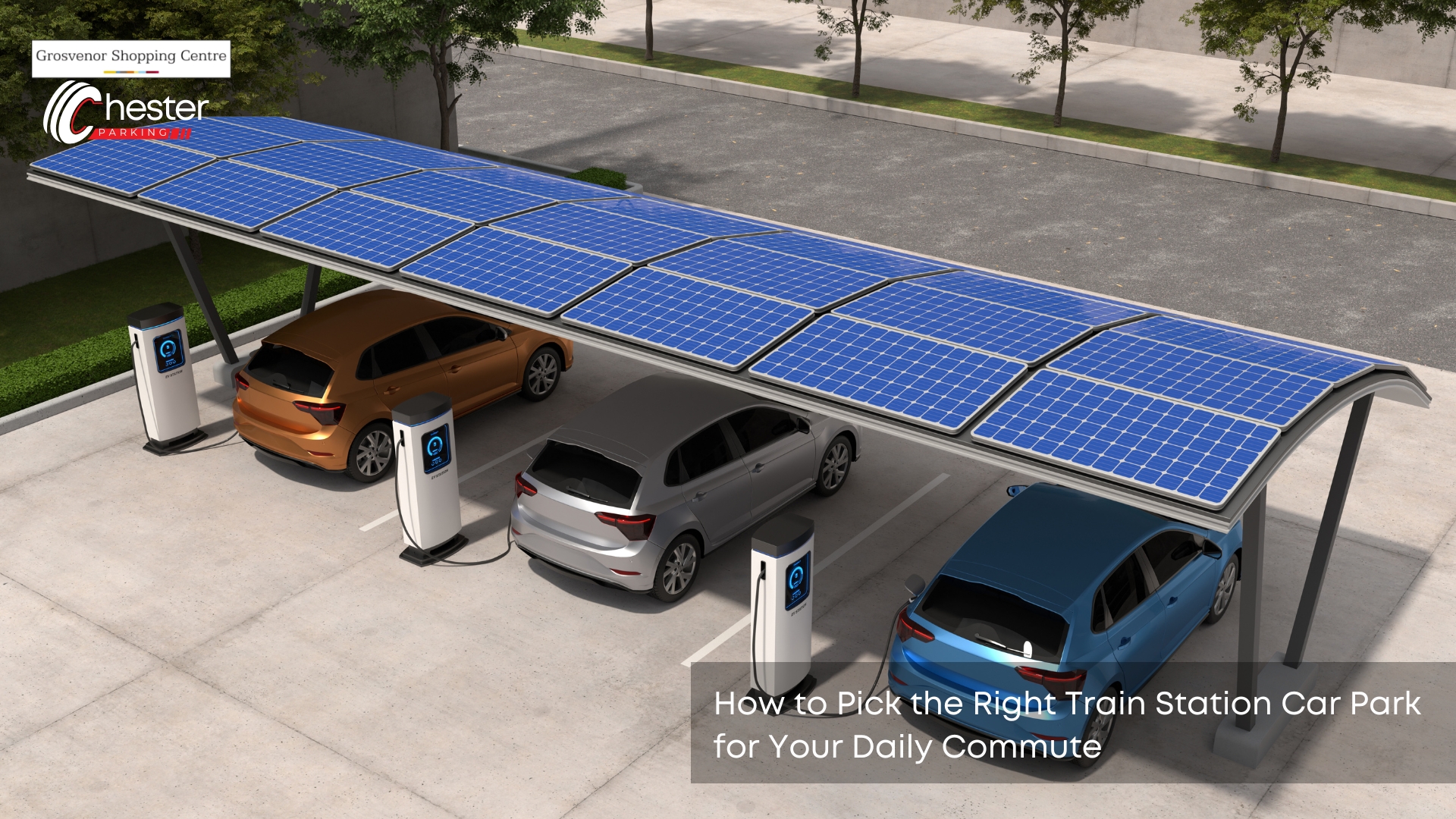Why Does Choosing the Right Car Park Matter for Commuters?
Choosing the right car park makes your daily commute easier and less stressful. A reliable train station car park saves time, reduces worry, and helps you avoid delays. It means you’re not wasting valuable minutes each morning searching for a space. It also adds convenience when parking near busy stations where space is limited. Getting your parking right gives your day a calmer and more confident start.
What Should You Look for in a Train Station Car Park?
Look for a car park that is close to the station, secure and offers good value. Features like CCTV, lighting, clear signs, and clean, well-marked bays are essential. It also helps to have helpful customer support or an easy-to-use parking app. A well-kept parking space close to the train platform can save you time every morning. Look for a balance of price, security, and daily convenience.
How Close Is the Car Park, and What Backup Options Are Available?
The car park should be within a short walking distance from the station entrance. This matters most during bad weather or when you are carrying bags. Check if there are overflow spaces, a nearby multistorey car park, or even street parking as backup options. This is useful if the main car park is full during peak hours. Having several options gives you confidence and helps you stay on time.
How Safe and Secure Is the Car Park?
A car park is considered secure if it features CCTV, adequate lighting, and visible security patrols or staff presence. Entry barriers, automatic number plate recognition, and strong fencing also add protection. Well-maintained areas reduce the chance of accidental damage to your car. Secure parking protects not only your vehicle but also you, the user, especially during early or late hours. You will feel more at ease when leaving your car in a safe place all day.
Are There Season Tickets or Discounts for Regular Users?
Yes, most train station car parks offer season tickets and commuter passes. These are usually available on a monthly, quarterly, or yearly basis, often at reduced daily rates. Some apps or providers also offer loyalty discounts or price caps after frequent visits. If you commute most weekdays, this option can save you hundreds of pounds a year. Always ask about discounted pricing before committing to a daily pay-as-you-go routine.
Can You Reserve a Space and Avoid Peak-Time Hassles?
Yes, many modern car parks now allow you to book a space in advance through their website or app. This helps you avoid the stress of arriving to find no spaces left, especially during the early morning rush hour. Reserved spaces can sometimes cost a bit more, but the peace of mind is worth it. Look for parking services that offer pre-booking with real-time availability updates. Booking ahead is particularly useful if your train journey is time-sensitive.
What Are the Opening Times and Access Rules?
Check the opening hours to make sure the car park fits your daily schedule. Some are open 24 hours, while others may close at night or operate only on weekdays. Read the signs to understand rules around ticketing, length of stay, or restrictions on overnight parking. If you plan to use a digital parking system, ensure that you have downloaded and set up the app in advance. Knowing these details in advance will prevent you from being caught off guard by fines or access issues.
How Do You Know If It’s Good Value for Money?
A car park offers good value when the price matches the level of convenience, safety, and services provided. Compare daily and monthly rates between nearby parking areas. Consider extras such as surface quality, bay size, shelter from rain, and the level of maintenance. Some cheaper car parks may lack lighting or feel unsafe, which might not be worth the savings. Choosing value does not always mean picking the lowest price, but the one that offers peace of mind and reliability.
Should You Consider Parking Alternatives Nearby?
Yes, it’s worth checking if there are other options near the station. Local council-run car parks or private parking spots can sometimes be cheaper and less crowded. Park-and-ride schemes are also excellent if available in your area, often offering cheaper long-stay parking with a short bus or train connection. Even residential driveways are sometimes listed on parking platforms for commuters. Having alternatives gives you more choices and can reduce your monthly parking costs.
What If You Drive an EV or Have Special Parking Needs?
Look for a car park that offers EV charging stations or has restricted access if needed. Many train station car parks now support electric vehicles, but spaces may be limited. Blue Badge bays and wider spaces are typically located near entrances for ease of access. Check signage or use apps to see if these services are available and if pre-booking is required. Planning is key if you have any specific mobility or charging needs during your commute. For wider access to EV-ready or disability-friendly bays, explore trusted Chester city car parking options that highlight these features in advance.
How Do Weather and Lighting Affect Your Parking Choice?
Weather and lighting can change how safe and easy a car park feels. In winter, open-air car parks can become slippery, and poor lighting can make it more difficult to see signs or obstacles. Covered or multistorey car parks offer better protection from wind, frost, and heavy rain, including dedicated 24 hour parking solutions that stay accessible and well-lit. Lighting is especially important if you travel in the early mornings or come back late. A well-lit car park helps prevent accidents and improves personal safety.
What Do Other Commuters Say About It?
Reviews and feedback from other commuters are helpful when choosing a car park. You can read honest opinions on platforms like Google Maps, Trustpilot, or parking apps. Look for comments on safety, pricing fairness, space availability, and ease of access. Bad reviews can help you avoid frustrating experiences, while good ones highlight reliable options. Asking colleagues or local community groups can also give useful tips. If you’re curious about how commuter insights tie into business value, you’ll also want to check out these profitable car park ideas shared from a local perspective.
How to Use This Guide to Make the Right Parking Decision
You can use this guide by comparing key features across several local car parks. Consider safety, pricing, distance to the station, EV support, and genuine user reviews. Keep a shortlist of the top choices, and try one for a week to see how it fits your routine. Planning and testing your options will help you make a confident and stress-free choice. A good car park can transform your daily commute into something much easier and more reliable.


Leave a Reply